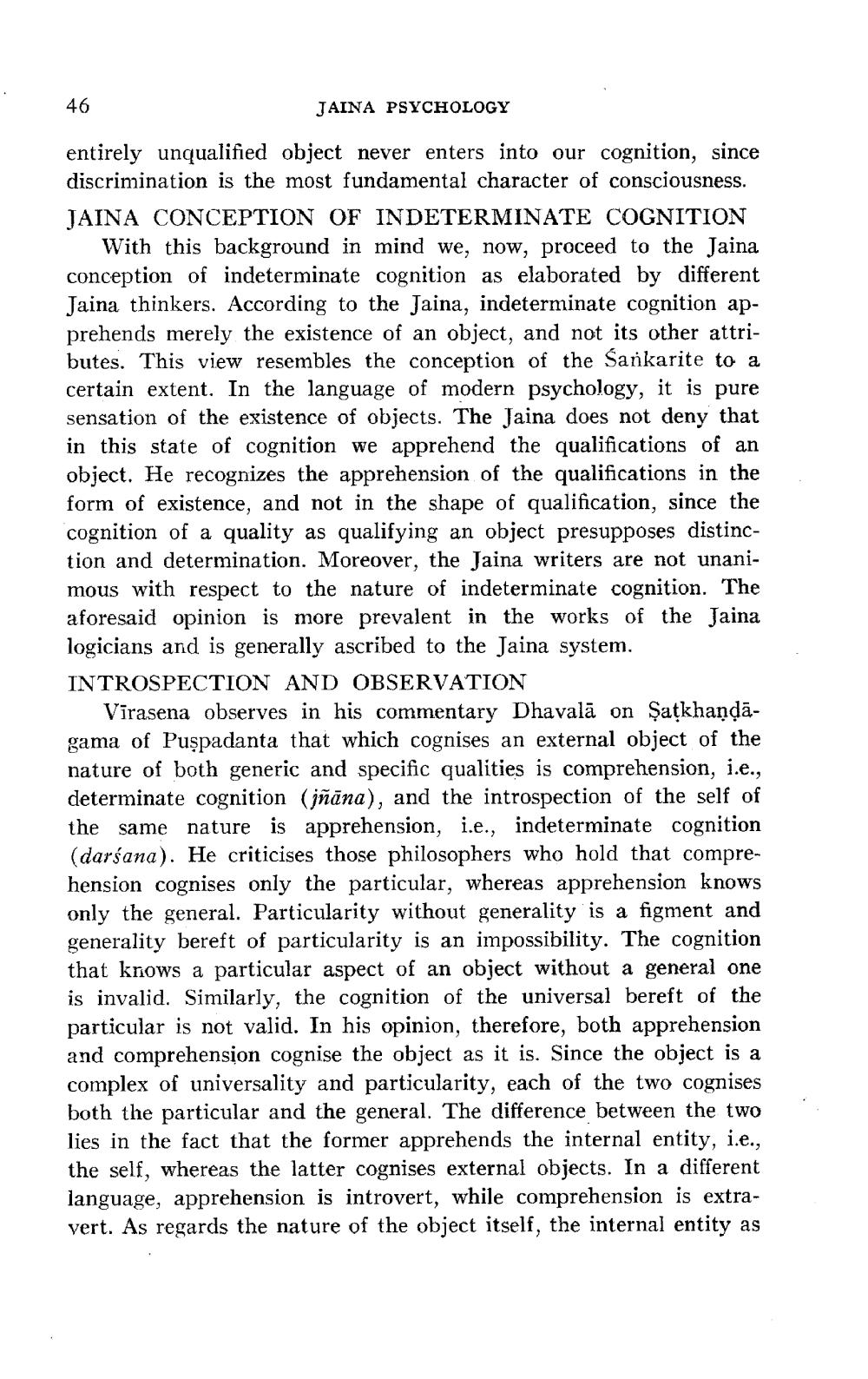________________
46
JAINA PSYCHOLOGY
entirely unqualified object never enters into our cognition, since discrimination is the most fundamental character of consciousness. JAINA CONCEPTION OF INDETERMINATE COGNITION
With this background in mind we, now, proceed to the Jaina conception of indeterminate cognition as elaborated by different Jaina thinkers. According to the Jaina, indeterminate cognition apprehends merely the existence of an object, and not its other attributes. This view resembles the conception of the Sankarite to a certain extent. In the language of modern psychology, it is pure sensation of the existence of objects. The Jaina does not deny that in this state of cognition we apprehend the qualifications of an object. He recognizes the apprehension of the qualifications in the form of existence, and not in the shape of qualification, since the cognition of a quality as qualifying an object presupposes distinction and determination. Moreover, the Jaina writers are not unanimous with respect to the nature of indeterminate cognition. The aforesaid opinion is more prevalent in the works of the Jaina logicians and is generally ascribed to the Jaina system.
INTROSPECTION AND OBSERVATION
Vīrasena observes in his commentary Dhavala on Satkhaṇḍāgama of Puspadanta that which cognises an external object of the nature of both generic and specific qualities is comprehension, i.e., determinate cognition (jñāna), and the introspection of the self of the same nature is apprehension, i.e., indeterminate cognition (darśana). He criticises those philosophers who hold that comprehension cognises only the particular, whereas apprehension knows only the general. Particularity without generality is a figment and generality bereft of particularity is an impossibility. The cognition that knows a particular aspect of an object without a general one is invalid. Similarly, the cognition of the universal bereft of the particular is not valid. In his opinion, therefore, both apprehension and comprehension cognise the object as it is. Since the object is a complex of universality and particularity, each of the two cognises both the particular and the general. The difference between the two lies in the fact that the former apprehends the internal entity, i.e., the self, whereas the latter cognises external objects. In a different language, apprehension is introvert, while comprehension is extravert. As regards the nature of the object itself, the internal entity as




